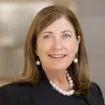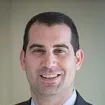- within Consumer Protection topic(s)
- in United States
- with readers working within the Retail & Leisure industries
- within Insurance, Coronavirus (COVID-19) and Accounting and Audit topic(s)
Greetings from Orlando, FL! The Crowell product safety team is currently attending the annual meeting and training symposium of the International Consumer Product Health and Safety Organization (ICPHSO). We just heard keynote remarks from the Chair of the U.S. Consumer Product Safety Commission (CPSC), Alexander Hoehn-Saric, and wish to share some highlights. As he did in October 2023 at the ICPHSO International Conference in Sweden, Chair Hoehn-Saric focused his remarks on addressing products sold on or through online marketplaces.
Chair Hoehn-Saric first set the stage by sharing some important data points. In 2023, the CPSC announced more than 300 product recalls; levied more than $52 million in civil penalties; engaged in 14 new mandatory safety standard rulemakings; screened more than 60,000 harmful products at the ports; and participated in numerous safety education campaigns. He also noted the budget uncertainty at the CPSC and the need to "do more with less" and stated that the CPSC will always "put consumers first" as they prioritize their work should the CPSC budget decrease.
Chair Hoehn-Saric also highlighted a number of changes taking place at the agency, and staff is currently focused on the following activities:
- ensuring that recall announcements reach consumers (preferably through direct notice) and that it is easy for consumers to take advantage of the remedy;
- warning the public about hazardous products if and when a company refuses to conduct a voluntary recall (Chair Hoehn-Saric noted that the agency issued 26 "unilateral press releases" over the past year, which he reported is more than in the previous five years combined);
- working with retailers and online marketplaces to ensure that consumers have a point of contact and that sellers do not disappear (more on that later);
- undertaking mandatory safety standard rulemakings to provide consumers "baseline safety protections" from potential hazards stemming from, for example, button/coin cell batteries, small magnets, furniture, and adult portable bed rails;
- pursuing civil penalties for failing to report;
- expanding outreach efforts to historically overlooked communities; and
- training more than 800 foreign industry and government representatives as well as small businesses in the U.S. (the latter of which has doubled in the past year).
Chair Hoehn-Saric then turned his attention to online marketplaces and made many of the same points that he did last fall in Sweden. In his view, as e-commerce grows exponentially, and new players enter the marketplace and introduce themselves to consumers, it is a critical time for online platforms to "act as a responsible gatekeeper" when it comes to product safety. CPSC's "e-safety team" has recently identified approximately 50,000 non-compliant or hazardous products while combing the Internet. In trying to "change the paradigm" of online shopping, Chair Hoehn-Saric asked e-commerce platforms (and manufacturers and sellers) to focus on the following:
(1) building corporate cultures that prioritize safety through actions, such as appointing a Chief Product Safety Officer to maintain compliance with federal and state laws and training all employees in product safety;
(2) holding third-party sellers accountable through sanctions and bans, and stopping the game of "whack-a-mole" whereby unscrupulous third-party sellers disappear and then relist under different names;
(3) creating safe products by design;
(4) empowering consumers with tools and safety information, such as warnings and instructions for use as well as effective, direct notice of any recall (i.e., email, text, banners, and push notification via app);
(5) taking responsibility for products listed on e-commerce platforms and stopping the finger pointing at sellers.
Interestingly, Chair Hoehn-Saric commented that the CPSC is not in the position to mandate these activities by online marketplaces, but challenged them to be industry leaders. He noted working with Congress to strengthen the CPSC's authorities in this regard.
Finally, Chair Hoehn-Saric ended his conference remarks by noting that he was "encouraged" by bi-partisan Congressional efforts to improve product safety with recently enacted laws and announced the CPSC's commitment to enforcing those recently enacted laws such as Reese's law on button cell and coin batteries, the Safe Sleep for Babies Act, the STURDY Act to prevent furniture tip-over, and the Portable Fuel Container Act.
The content of this article is intended to provide a general guide to the subject matter. Specialist advice should be sought about your specific circumstances.






